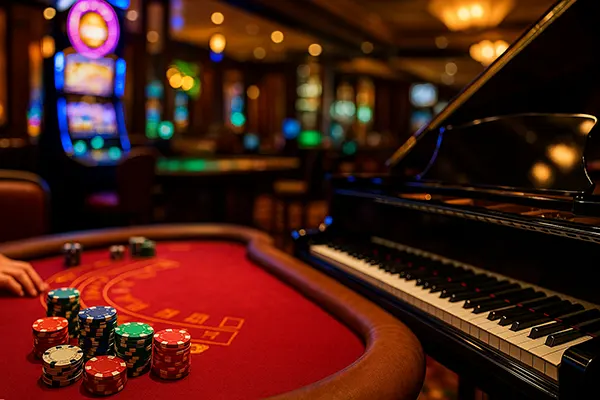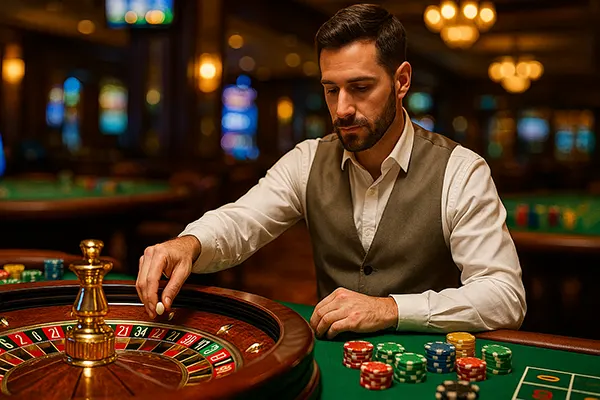
Music in Casinos: How Soundtracks Influence Player Behaviour
Soundtracks in Casinos: The Psychology Behind Player Actions
The Psychology of Music in Casino Settings
The influence of music on human behaviour has been well-documented in psychological research, and casinos have adopted these findings to fine-tune the player experience. Slow, melodic tracks tend to prolong playing sessions by creating a relaxed ambience, while faster tempos can increase the pace of betting and decision-making. By adjusting the rhythm and tone throughout the day, casinos can subtly adapt the energy of the room to align with desired operational outcomes.
In land-based casinos, music also works in tandem with lighting and decor to create a cohesive emotional environment. A soft jazz background can give the impression of sophistication, while upbeat pop or electronic tunes can make the space feel lively and energetic. This multi-sensory approach is carefully designed to keep players in a positive mental state, which in turn influences their willingness to continue participating in games.
For online casinos, background soundtracks and sound effects are equally critical. Developers integrate music into slot machines, table games, and live dealer streams to enhance immersion. The audio cues are not just for entertainment; they provide feedback loops that can subtly reward actions and encourage further engagement, even without players consciously realising it.
Scientific Research Behind Soundtrack Influence
Several academic studies, including those conducted by universities specialising in behavioural sciences, confirm that tempo, pitch, and key can all affect risk-taking behaviour. For example, higher-tempo music has been linked to quicker decision-making, which can lead to faster wagering cycles. Conversely, lower-tempo tracks tend to slow down player actions, potentially leading to longer sessions but with smaller wagers.
Neurological research suggests that music stimulates the brain’s reward system, releasing dopamine and enhancing feelings of pleasure. This chemical response can increase the perceived enjoyment of the activity, making players more inclined to remain engaged. Casino sound designers use this knowledge to balance entertainment value with responsible gambling principles, ensuring that the experience is immersive without becoming manipulative.
Importantly, responsible operators in 2025 are increasingly aware of the ethical implications of using music as a behavioural tool. As regulations tighten in many jurisdictions, there is greater emphasis on ensuring that sensory design does not exploit vulnerable individuals, with some regions even introducing guidelines on permissible audio-visual strategies in gaming environments.
Music Trends in Casinos for 2025
Casino soundscapes in 2025 are evolving to match broader cultural and technological trends. In physical venues, there is a shift towards curated playlists that change dynamically based on the time of day, customer demographics, and game types in play. AI-driven music systems can now analyse crowd mood in real-time and adjust the soundtrack to optimise engagement while complying with responsible gaming policies.
In online gambling, developers are embracing adaptive audio systems. These systems personalise music based on the player’s preferences or gameplay history, creating a more tailored and enjoyable experience. For example, a player who frequently selects classic slot games may hear retro-inspired tracks, while fans of high-paced live dealer games might be accompanied by energetic, rhythmic beats.
Another significant trend is the blending of popular music licensing with casino gaming. Partnerships between game developers and music labels allow players to enjoy familiar tracks from well-known artists during gameplay, adding an element of recognition and nostalgia. This trend is particularly prevalent among younger audiences, who value personalisation and cultural relevance in their entertainment experiences.
The Role of Technology in Shaping Casino Soundscapes
Advanced sound engineering tools now allow for seamless integration of music with game mechanics. In modern slot machines, for example, music intensity often increases as players approach bonus rounds, heightening anticipation. Live dealer games use background tracks that subtly adapt to the pace of play, ensuring a consistent yet engaging atmosphere.
Spatial audio technology is also making its way into both physical and virtual casinos. This creates a more immersive sound environment, where music and effects seem to originate from specific locations in the space, enhancing realism. In VR casinos, this technology helps replicate the nuanced acoustics of a real gaming hall.
Importantly, operators are leveraging these advancements to balance immersion with comfort. Excessively loud or repetitive soundtracks can cause fatigue, so systems are increasingly designed to adjust volume and variety automatically to maintain a pleasant experience over longer sessions.

Responsible Use of Music in Gambling Environments
While music can enhance entertainment value, its influence on player behaviour raises questions about ethical use. Regulators and industry bodies in 2025 are paying closer attention to how sensory design impacts decision-making, with some requiring transparency about psychological influences in marketing and game design.
Casinos and developers are responding by adopting best practices that prioritise player well-being. This includes offering options to adjust or mute background music, providing clear information about audio features, and avoiding manipulative sound cues that could encourage excessive spending.
Additionally, responsible gambling organisations are conducting independent reviews of audio-visual strategies to ensure compliance with consumer protection standards. This proactive approach is helping the industry balance commercial goals with ethical obligations, fostering trust among players and regulators alike.
Future Outlook on Music and Player Behaviour
Looking ahead, the relationship between music and gambling behaviour is likely to become even more sophisticated. With advancements in AI, biometrics, and adaptive design, casino soundscapes could soon respond to individual player states in real-time, potentially adjusting not just music but the entire sensory environment to maintain comfort and engagement.
However, this technological potential comes with increased responsibility. Transparent disclosure, ethical boundaries, and regulatory oversight will be essential to ensure that these tools enhance entertainment without crossing into undue influence. The industry’s long-term credibility will depend on its ability to balance innovation with integrity.
Ultimately, music will remain a powerful component of the casino experience, shaping emotions and decisions in ways that are both subtle and profound. In 2025, the most successful operators will be those who use this influence responsibly, creating environments where entertainment and player protection coexist harmoniously.
